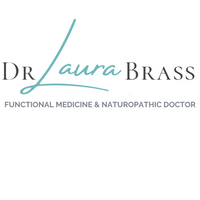Why Your IBS Isn’t Just About Diet: The Microbiome’s Role

If you’ve been grappling with Irritable Bowel Syndrome (IBS), you’re probably familiar with the frustration of endlessly tweaking your diet in hopes of relief. You’ve likely encountered a multitude of dietary recommendations—from low FODMAP to gluten-free—each promising to ease your digestive woes. Yet, despite your best efforts, you might still find yourself battling uncomfortable symptoms. Here’s a crucial insight that might change the way you approach your IBS management: your symptoms might not be solely about your diet but could be deeply rooted in the health of your gut microbiome.
Unraveling the Food Mystery
Let’s address some common scenarios that might sound all too familiar:
- Inconsistent Reactions: You eat a seemingly harmless meal one day, and your gut feels fine. But the same meal causes distress the next week.
-
Healthy Diet, Unhealthy Gut: the more vegetables and healthy fibres you consume, the more discomfort your gut seems to experience?
These frustrating experiences highlight a crucial truth: while diet plays a significant role in managing IBS, the root cause of your symptoms may lie in something more foundational—your gut microbiome.
🦠 Gut Microbiome Imbalance: The Real Culprit
The gut microbiome, a complex community of trillions of microorganisms living in your digestive tract, is integral to your overall health. When this delicate ecosystem is out of balance, it can lead to IBS symptoms. Let’s delve into why this imbalance might be the hidden driver of your digestive issues:
Too Many Harmful Bugs
A common issue in IBS is an overgrowth of harmful bacteria, a condition known as Small Intestine Bacterial Overgrowth (SIBO). When harmful microbes outnumber beneficial ones, they can disrupt digestion and cause a host of symptoms, including:
- Bloating: Excess gas production from these bacteria can lead to uncomfortable bloating.
- Gas: The fermentation of undigested food can result in excessive gas.
- Abdominal Pain: Inflammation caused by microbial imbalance can irritate the gut lining and lead to pain.
- Irregular Bowel Movements: The imbalance can alter gut motility, resulting in diarrhea, constipation, or both.
The Good News
The good news is that microbial imbalances like SIBO can be tested for and treated. If you’ve been diligently following dietary recommendations without success, it might be time to investigate your gut microbiome more closely.
Why Focus on the Microbiome?
Understanding and addressing the health of your gut microbiome can offer a more holistic approach to managing IBS. Here’s why focusing on your microbiome is crucial:
- Microbial Balance: Restoring balance to your gut bacteria can alleviate symptoms and improve overall gut health.
- Inflammation Reduction: By addressing microbial imbalances, you can reduce gut inflammation and discomfort.
- Improved Digestion: A healthy microbiome supports better digestion and nutrient absorption.
Moving Forward
If you’ve found yourself caught in the cycle of dietary changes without real relief, it might be time to look at your gut microbiome as a key factor in your IBS symptoms. Exploring and addressing this aspect of your health can lead to more effective and lasting results.
Ready to take control of your digestive health and uncover the secrets of a balanced microbiome? Start your journey today with My Gut Bootcamp Program and take charge of achieving a healthier, happier gut. This course is the culmination of 15 years of successfully treating gut health issues, now distilled into a self-paced program that provides all the information and tools you need to finally understand and heal your gut.
For more details on the course and to sign up, click here. Empower yourself to address the root causes of IBS and find lasting relief.
Remember, your journey to better gut health is not just about what you eat—it’s about creating the right environment for your gut to thrive.




Leave a comment